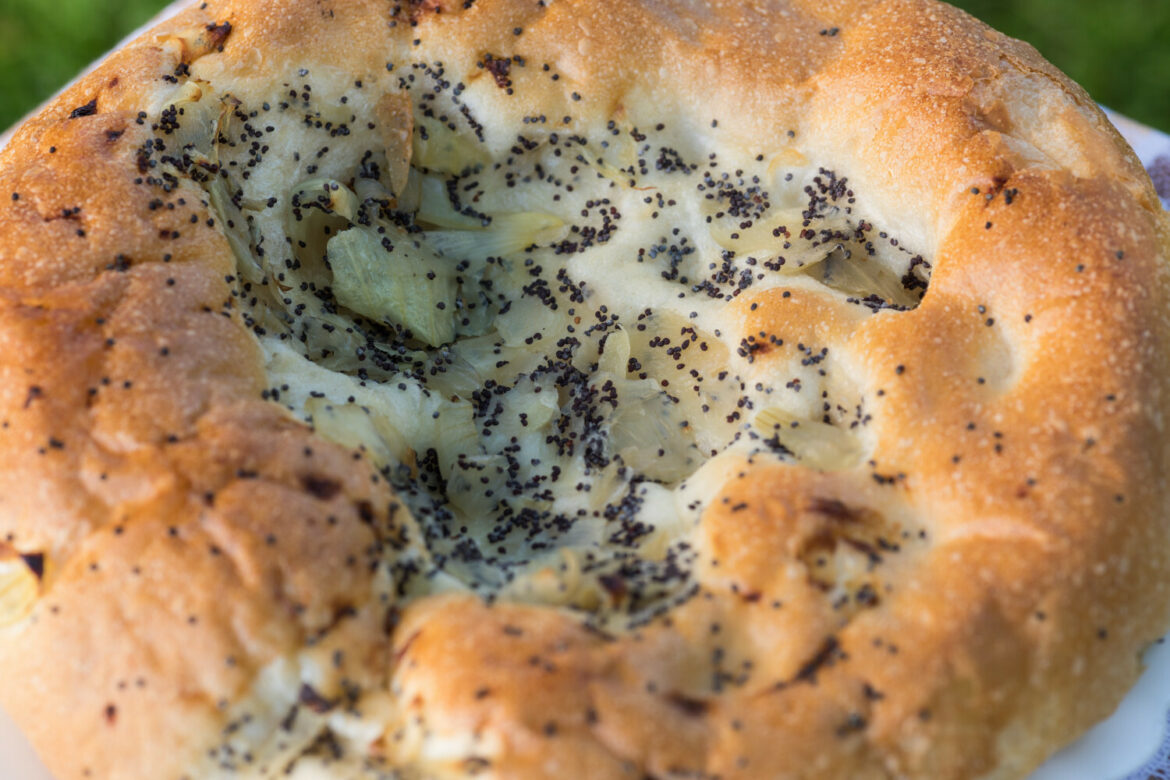Each nation has its own version of pizza. Italians eat, of course, a pizza with cheese and tomato sauce. Khachapuri comes from Georgia. In the Balkans they prefer burek. The Greeks have a Tiropita. And in interwar Poland, the Jews created their own variety – tsibel pletzel.
It is difficult to say exactly when they started to bake as pittas sprinkled with diced onions. It is also a mistery who invented and distributed that dish. Its origins seem to be truly legendary.
Royal love and onion pita
In Poland, there are many stories about Estera Małach, a young Jewish woman who was truly loved by the Polish king, Casimir the Great who is known in the Jewish tradition as a ruler favoring the followers of Judaism. Esterka was supposed to be an extremely beautiful woman but in order to gain royal favor for a longer time, she intended to charm him with her culinary talent. In a hurry, she baked pittas with onions sprinkled with poppy seeds which the Polish ruler liked very much.
Jewish bakers from Lublin
In historical sources, the onion pittas appear only in the 19th century, thanks to Jewish bakers from Lublin (a city in eastern Poland) then inhabited by many Jews. They distributed the dish to the rest of Poland. The very name “cebularz” gained popularity only after World War II. Previously, the term “tsibel pletzel” was used (tsibel in Yiddish means onion; pletzel stands for a board or a plate).
Saved by Poles during the Holocaust, Józef Honig, a Polish Jew from Lublin, for many years working as a caretaker of the old cemetery, in an interview with Barbara Odonus recalled the cebularz with delight: “They had good breads, buns. What was their cebularz!!! Jewish bakeries were very good. (…) What was that taste!!! (…) It was Zięba’s bakery on Kalina, back there, behind the cemetery. What bread, what buns did he have … He wasn’t cheating. He added butter, he added milk. He added everything to the cake.”
Lublin regional dish
Although there are no Jewish bakers in Lublin anymore, Polish craftsmen continue the tradition of baking cebularz. Today it is a regional product legally protected by the Poland and the European Union’s law.
In 2017, the Cebularz Museum was established in Lublin.





